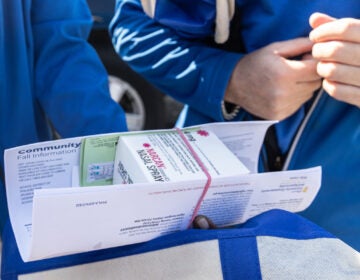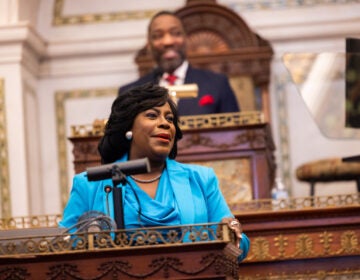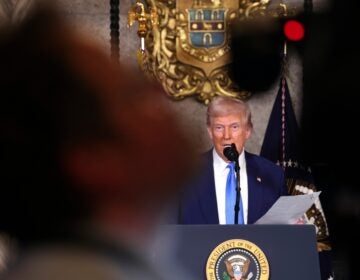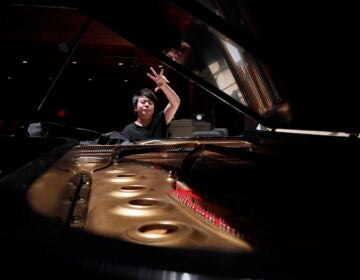School safety: Survey finds most teachers question active shooter drills
A recent survey released by RAND found that teachers don’t feel any safer or more prepared to respond to active shooter incidents after lockdown drills.
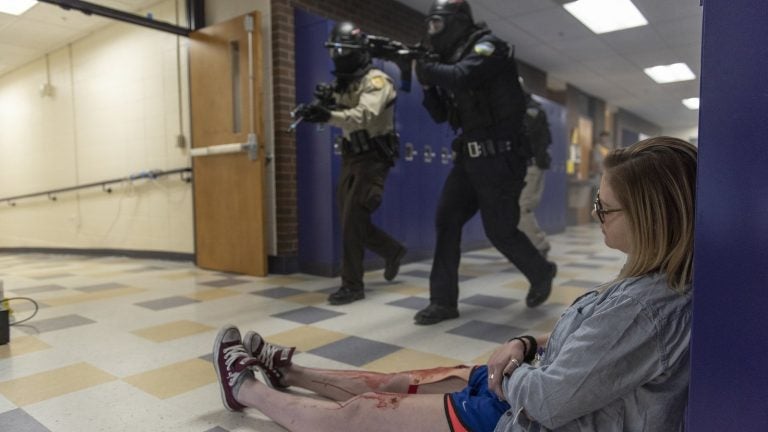
Authorities perform an active shooter drill at Park High School on April 27, 2018 in Livingston, Mont. Some experts question the methods of active shooter drills. (William Campbell/Corbis via Getty Images)
From Philly and the Pa. suburbs to South Jersey and Delaware, what would you like WHYY News to cover? Let us know!
Teachers deal with nearly all types of challenges in the classroom. While they are pretty equipped to handle most of them, school shooter incidents have taken their toll.
Arthur Steinberg, President of the Philadelphia Federation of Teachers explained, “Our members report mixed opinions about the utility of safety drills, but many agree that they are traumatizing and underscore the absolute failure of state and federal government to appropriately regulate the firearms industry and trade.”
A new RAND survey reveals that the sentiments expressed by Steinberg regarding school safety and active shooter drills mirror those of teachers across the country.
Researchers administered a survey to a randomly selected sample of 1,020 K–12 teachers using the American Teacher Panel.
According to RAND, the survey “specifically asked whether such drills made teachers feel more or less safe and prepared to respond to active assailant events and teachers’ perceptions of their students’ feelings about such drills, as well as whether supports were available to students and staff during and following drills.”
The RAND survey pointed out some key findings:
- One in six K–12 teachers nationally works in a district that has been touched by gun violence since the 2019–2020 school year.
- Schools do not typically announce when an active shooter drill will occur to students and parents, and many schools are not providing support to help students and staff manage any stress or anxiety that such drills often cause.
- Teachers are split on whether participation in drills makes them feel more prepared to respond to active shooter incidents: Slightly less than half said that drills make them feel more prepared, and half perceived drills as having no impact on preparedness. A slight majority of teachers (54%) reported that drills make students feel more prepared to respond to such incidents.
- Most teachers (69%) indicated that participating in active shooter drills has no impact on their perceptions of safety at school, and only one-fifth said that drills make them feel more safe.
“Schools should be sanctuaries from violence, yet the reality is that guns are so ubiquitous, and so easy to obtain in Pennsylvania without a background check or showing ID,” Steinberg said.
Steinberg told WHYY that structural issues in many of the aging school facilities also present security challenges. He pointed out the example of broken locks and windows that don’t easily open and close.
“The safety training advises use of certain materials such as tennis balls (to distract an intruder), but the district does not provide those materials, imposing an additional burden on already overburdened and underpaid teachers and staff,” Steinberg said.
In addition, he said “violent crime is concentrated in the most underserved parts of our city, which directly impacts schools.”
“Students, families, and staff deserve to be safe within our schools and while walking to and from school,” Steinberg said.
Greg Jackson, deputy director of the White Office of Gun Violence Prevention, said the findings of the RAND survey make sense.
“We do know there are more effective ways to prevent violence,” Jackson said. “76% of guns that arrive on school grounds come from the home and so the best way that we can start to prevent these tragedies is by securely storing firearms in the home, educating parents and students about the urgency and best practices of storage.”
Critics argue school shooter drills are ineffective for addressing the mental health needs of students.
“We are adding 14,000 school-based mental health professionals to our public school system. We help expand and build out what is now the 988 suicide crisis life line, in which we received over 10 million calls,” Jackson said.
“And we will continue to invest and strengthen our mental health system to insure that there are more resources for our youth that we know are in crisis independent of these drills.”

Get daily updates from WHYY News!
WHYY is your source for fact-based, in-depth journalism and information. As a nonprofit organization, we rely on financial support from readers like you. Please give today.



